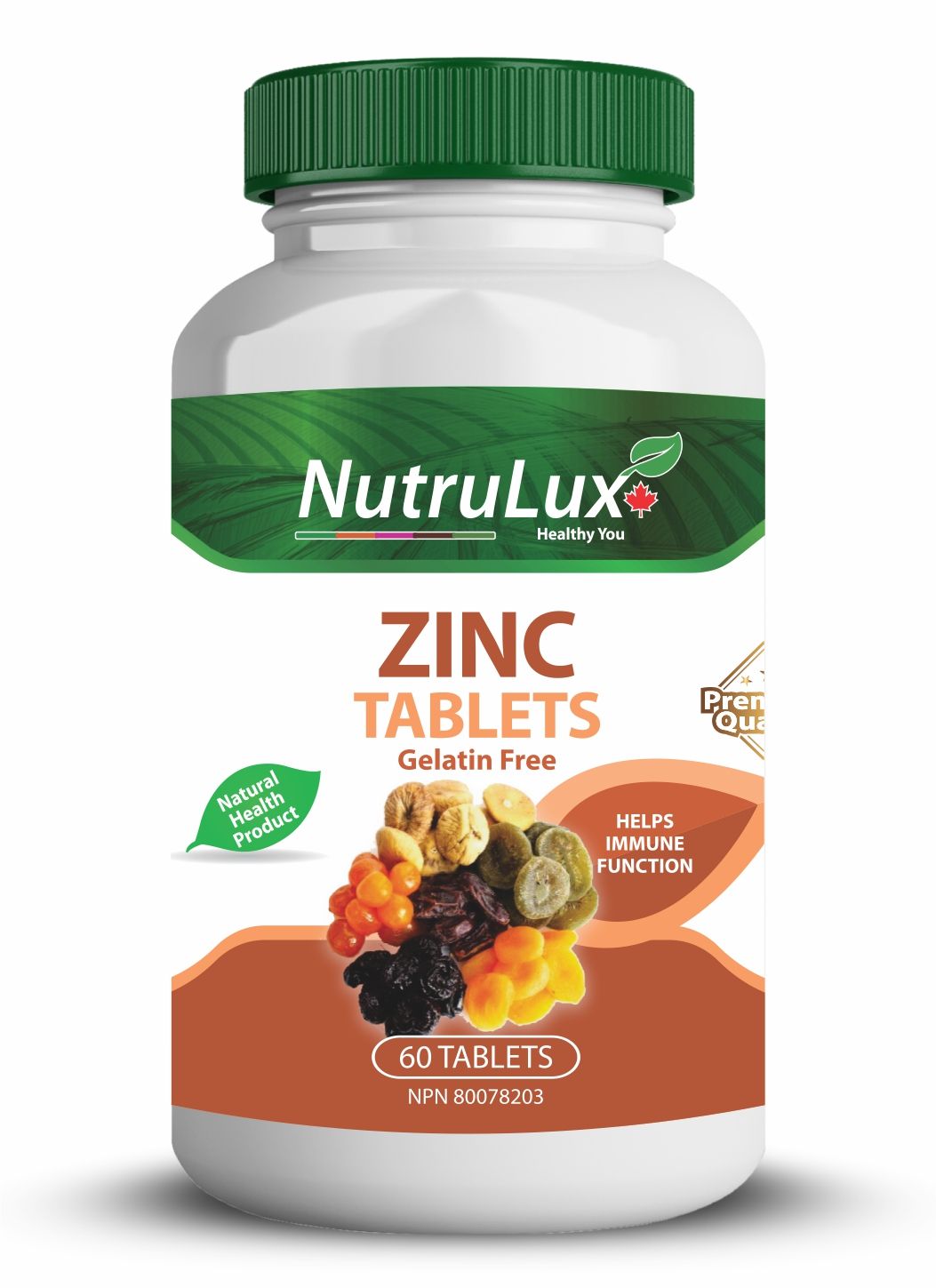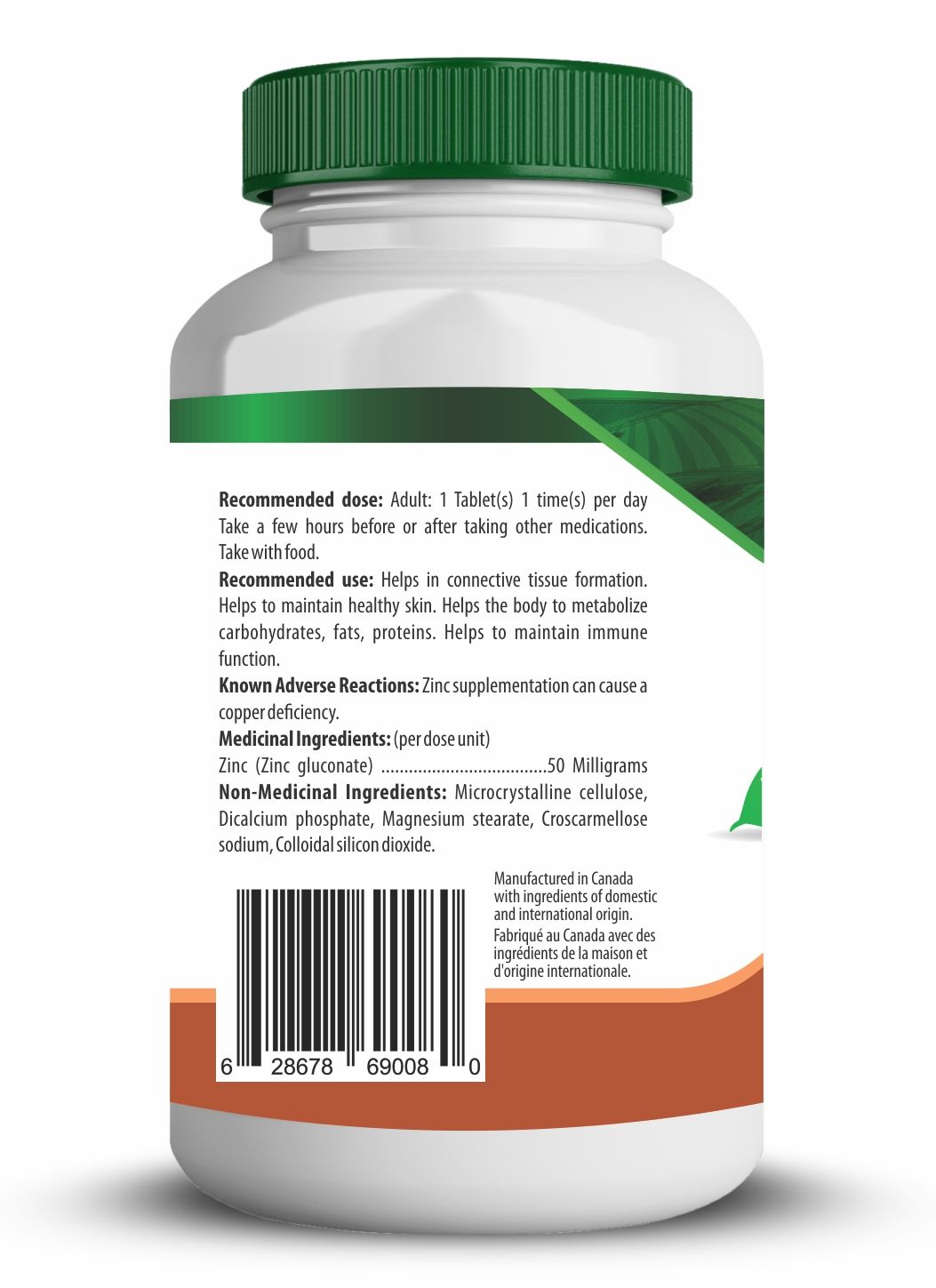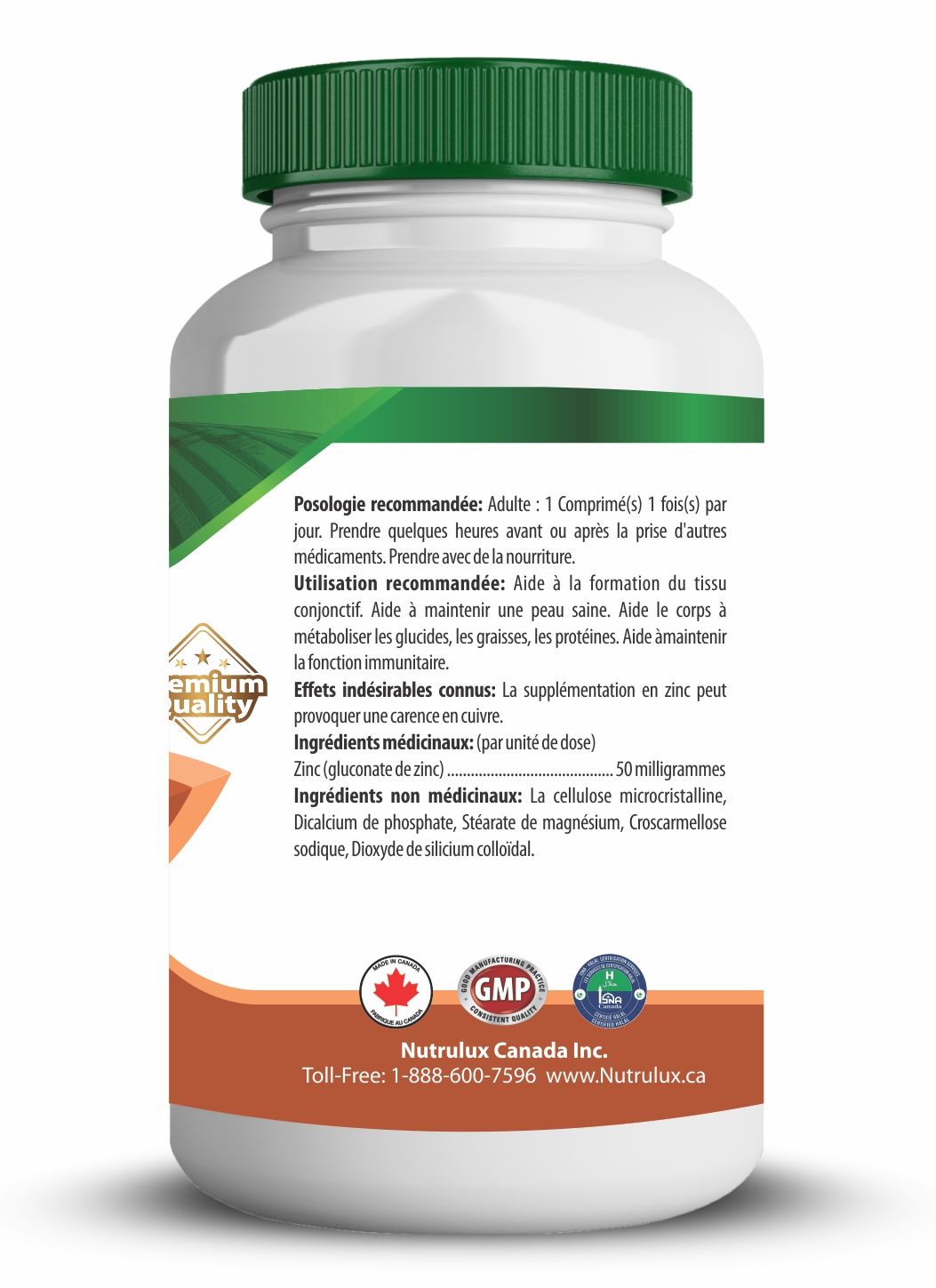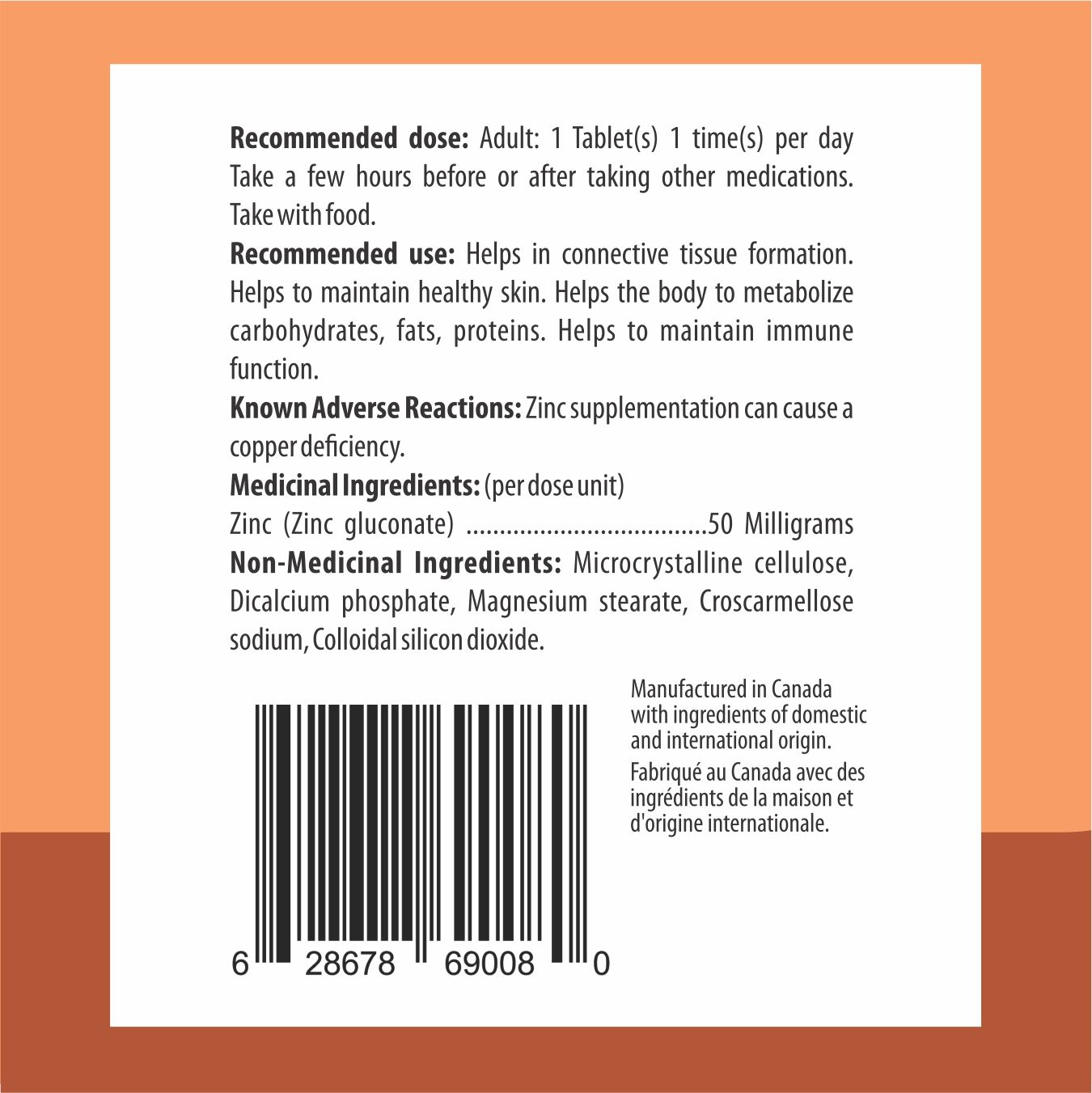
Zinc (50 mg Zinc) Halal Gelatin Free Tablets
$12.99
Zinc is needed for DNA synthesis, immune function, metabolism and growth. It may reduce inflammation and your risk of some age-related diseases. Most people meet the RDI of 11 mg for men and 8 mg for women through diet, but older adults and people with diseases that inhibit zinc absorption may need to supplement.
Because high-dose zinc supplements can lead to dangerous side effects, it’s important to stick to recommendations and only take supplements when necessary.
Recommended dose: Adult: 1 Tablet(s) 1 time(s) per day
Take a few hours before or after taking other medications. Take with food.
Recommended use: Helps in connective tissue formation.
Helps to maintain healthy skin. Helps the body to metabolize carbohydrates, fats, and proteins. Helps to maintain immune function.

Buy 1 & Get 1 Free
Description
What is Zinc?
Zinc is a nutrient that plays many vital roles in your body. Because your body doesn’t naturally produce zinc, you must obtain it through food or supplements. This article explains everything you need to know about zinc, including its functions, health benefits, dosage recommendations, and potential side effects.
Zinc is considered an essential nutrient, meaning that your body can’t produce or store it. For this reason, you must get a constant supply through your diet.
Zinc is required for numerous processes in your body, including:
- Gene expression
- Enzymatic reactions
- Immune function
- Protein synthesis
- DNA synthesis
- Wound healing
- Growth and development
Zinc is naturally found in a wide variety of both plant and animal foods.
Foods that don’t naturally contain this mineral, such as breakfast cereals, snack bars and baking flour, are often fortified with synthetic forms of zinc. You can also take zinc supplements or multi-nutrient supplements that provide zinc. Because of its role in immune function, zinc is likewise added to some nasal sprays, lozenges, and other natural cold treatments.
Role in Your Body
Zinc is a vital mineral that your body uses in countless ways. In fact, zinc is the second-most-abundant trace mineral in your body — after iron — and is present in every cell. Zinc is necessary for the activity of over 300 enzymes that aid in metabolism, digestion, nerve function, and many other processes. In addition, it’s critical for the development and function of immune cells. This mineral is also fundamental to skin health, DNA synthesis, and protein production. What’s more, body growth and development rely on zinc because of its role in cell growth and division. Zinc is also needed for your senses of taste and smell. Because one of the enzymes crucial for proper taste and smell is dependent on this nutrient, a zinc deficiency can reduce your ability to taste or smell.
Health Benefits
Research shows that zinc has numerous health benefits. Boosts Your Immune System Zinc helps keep your immune system strong. Because it is necessary for immune cell function and cell signaling, a deficiency can lead to a weakened immune response. Zinc supplements stimulate particular immune cells and reduce oxidative stress. For example, a review of seven studies demonstrated that 80–92 mg per day of zinc may reduce the length of the common cold by up to 33%. What’s more, zinc supplements significantly reduce the risk of infections and promote an immune response in older adults.
Accelerates Wound Healing
Zinc is commonly used in hospitals as a treatment for burns, certain ulcers, and other skin injuries. Because this mineral plays a critical role in collagen synthesis, immune function, and inflammatory response, it is necessary for proper healing. In fact, your skin holds a relatively high amount — about 5% — of your body’s zinc content. While a zinc deficiency can slow wound healing, supplementing with zinc can speed recovery in people with wounds. For example, in a 12-week study in 60 people with diabetic foot ulcers, those treated with 200 mg of zinc per day experienced significant reductions in ulcer size compared to a placebo group.
























